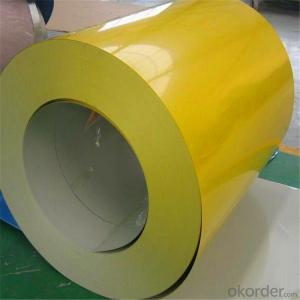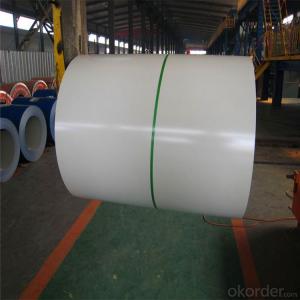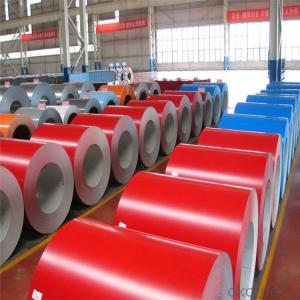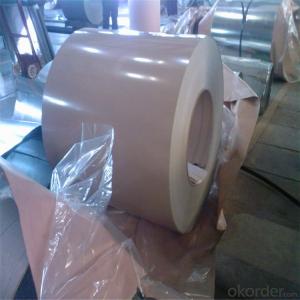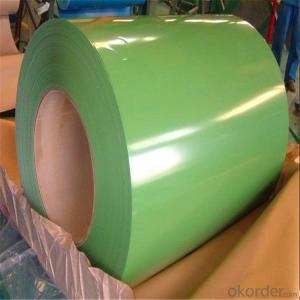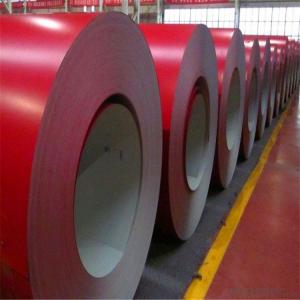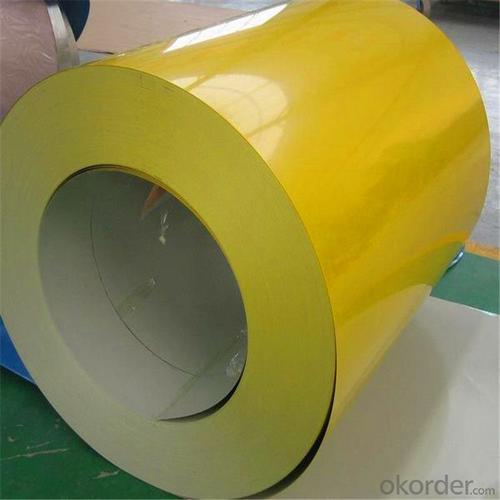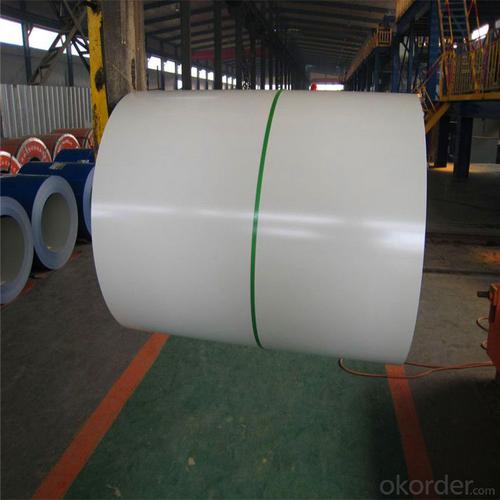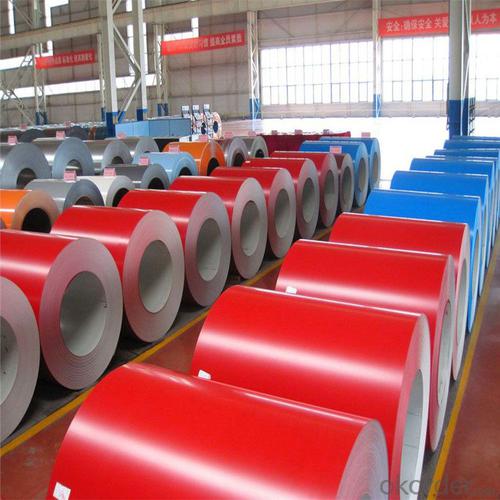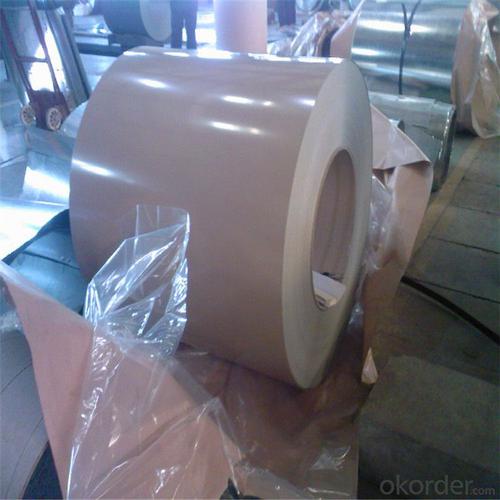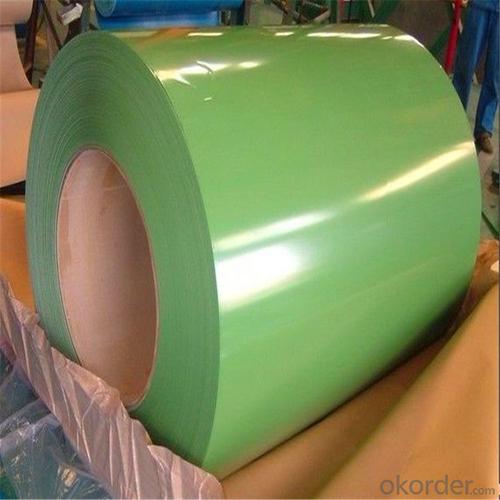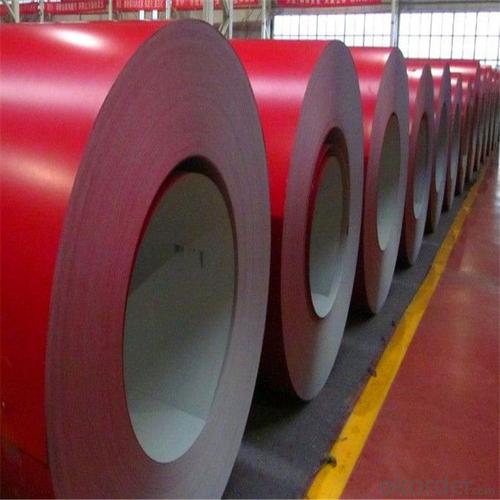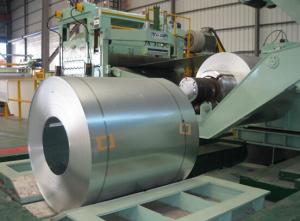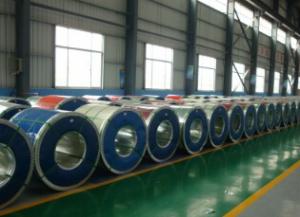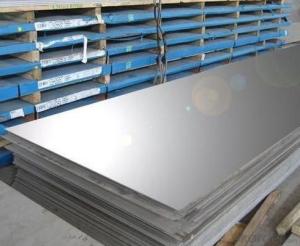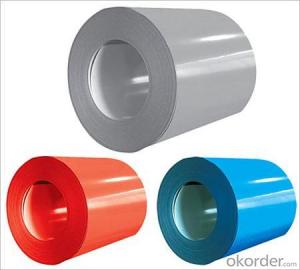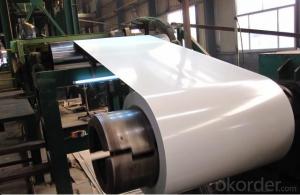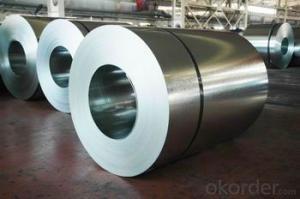Ppgl Color Coated Galvanized Steel Sheet in Coils
- Loading Port:
- Tianjin
- Payment Terms:
- TT or LC
- Min Order Qty:
- 25 m.t.
- Supply Capability:
- 5000 m.t./month
OKorder Service Pledge
OKorder Financial Service
You Might Also Like
Specification
Ppgl Color Coated Galvanized Steel Sheet in Coils
Description of Ppgl Color Coated Galvanized Steel Sheet in Coils
Product | PPGI/PPGL |
Capacity | 5,000 tons/month |
Base material | Hot dipped galvanized steel |
Thickness | 0.2-2.0mm |
Width | 600-1250mm(according to your need) |
Coil Weight | 3-6tons |
Quality | SGCC, DX51D |
Color | RAL No. or customers samples’ color |
Zinc-coating | 30g/m2-180g/m2 |
Coil ID | 508mm/610mm |
Technique | Cold rolled—hot dipped galvanized—color coated |
Painting | Top painting:15~25μm |
Back painting: 6~10μm | |
Tolerance | Thickness: +/-0.02mm |
Width:+/-2mm | |
Shipment time | within 15-45 workdays |
Payment | T/T, L/C at sight |
Packing | Standard export packing |
The special order can be negotiated. | |
Application of Ppgl Color Coated Galvanized Steel Sheet in Coils
APPLICATION OF OUR PREPAINTED STEEL | ||||||||||
Construction | Outside | Workshop,agricultural warehouse,residential precast unit | ||||||||
corrugated roof,roller shutter door,rainwater drainage pipe,retailer booth | ||||||||||
Inside | Door,doorcase,light steel roof stucture,folding screen,elevator,stairway,ven gutter,Construction Wall | |||||||||
Electrical applicance | Refrigerator,washer,switch cabnet,instrument cabinet,air conditioning,micro-wave owen,bread maker | |||||||||
Fuiniture | Central heating slice,lampshade,chifforobe,desk,bed,locker,bookself | |||||||||
Carrying trade | Exterior decoration of auto and train,clapboard,container,isolation lairage,isolation board | |||||||||
Qthers | Writing panel,garbagecan,billboard,timekeeper,typewriter,instrument panel,weight sensor,photographic equipment | |||||||||
Products Show of Ppgl Color Coated Galvanized Steel Sheet in Coils

Product Advantages
1.With nearly 20 years experience in prepainted steel, accommodate different marketdemands. | ||||||||||||||
2.'Quality first, service first' is our business aim; 'The good faith get respect,cast quality market' is our Business philosophy . | ||||||||||||||
3.Having two series producttion line,with the abbual production capacity of 240000 tons. | ||||||||||||||
4.Exceed International ISO9001:2008&ISO14001:2004 quality and environmental standards | ||||||||||||||
5.Meet with ROHS standard |
Company Information
CNBM International Corporation is the most important trading platform of CNBM group.
Whith its advantages, CNBM International are mainly concentrate on Cement, Glass, Iron and Steel, Ceramics industries and devotes herself for supplying high qulity series of refractories as well as technical consultancies and logistics solutions.


F A Q
1, Your advantages?
professional products inquiry, products knowledge train (for agents), smooth goods delivery, excellent customer solution proposale
2, Test & Certificate?
SGS test is available, customer inspection before shipping is welcome, third party inspection is no problem
3, Factory or Trading Company?
CNBM is a trading company but we have so many protocol factories and CNBM works as a trading department of these factories. Also CNBM is the holding company of many factories.
4, Payment Terms?
30% TT as deposit and 70% before delivery.
Irrevocable L/C at sight.
5, Trading Terms?
EXW, FOB, CIF, FFR, CNF
6, After-sale Service?
CNBM provides the services and support you need for every step of our cooperation. We're the business partner you can trust.
For any problem, please kindly contact us at any your convenient time.
We'll reply you in our first priority within 24 hours.
- Q: How does special steel perform in terms of chemical resistance?
- Special steel generally performs well in terms of chemical resistance. It is often designed to have high resistance to corrosion, oxidation, and chemical reactions with various substances. This attribute makes it suitable for applications in industries like oil and gas, chemical processing, and marine environments. However, the specific chemical resistance of special steel can vary depending on its composition and treatment, so it is important to consider the specific requirements and consult with experts when selecting the appropriate type of special steel for a particular application.
- Q: What are the properties of alloy steel?
- Alloy steel is a type of steel that is made by combining iron with other elements, such as carbon, manganese, nickel, or chromium. It possesses unique properties that make it highly desirable for various applications. Some of the properties of alloy steel include high strength, excellent toughness, good corrosion resistance, and enhanced wear resistance. Additionally, alloy steel can be easily machined and welded, allowing for greater flexibility in its usage. The specific properties of alloy steel can vary depending on the particular elements added to it, leading to a wide range of alloys with different characteristics.
- Q: What are the main factors affecting the strength of special steel?
- The main factors affecting the strength of special steel include the composition of the steel, the heat treatment process, and the presence of any impurities or defects in the material. Additionally, the grain size and structure of the steel, as well as the presence of any alloying elements or treatments, can also impact its strength.
- Q: What are the environmental impacts of manufacturing special steel?
- Manufacturing special steel has significant environmental impacts due to its energy-intensive production process and the extraction of raw materials. The production of special steel requires high temperatures and uses large amounts of fossil fuel-based energy, resulting in substantial greenhouse gas emissions contributing to climate change. Additionally, the extraction of iron ore and other raw materials for steel production can lead to deforestation, habitat destruction, and water pollution. The disposal of steel waste and byproducts also poses challenges, as it can contaminate soil and water sources. Therefore, the environmental impacts of manufacturing special steel must be carefully managed and mitigated through sustainable practices and technologies.
- Q: What are the different methods of surface thermal spraying for special steel?
- There are several different methods of surface thermal spraying that can be used for special steel. These methods include: 1. Flame spraying: In this method, a flame or oxy-fuel source is used to melt the coating material, which is then sprayed onto the surface of the special steel. This method is commonly used for applying coatings such as zinc, aluminum, or their alloys. 2. Arc spraying: Arc spraying involves using an electric arc to melt the coating material, which is then propelled onto the surface of the special steel using compressed air. This method is often used for applying coatings such as stainless steel, nickel alloys, or copper. 3. Plasma spraying: Plasma spraying utilizes a plasma torch to heat and melt the coating material, which is then propelled onto the surface of the special steel. This method is particularly effective for applying coatings such as ceramic or metallic materials with high melting points. 4. High-velocity oxy-fuel (HVOF) spraying: HVOF spraying involves using a high-pressure combustion process to propel the coating material onto the surface of the special steel. This method produces coatings with high bond strength and density, making it suitable for applications requiring wear resistance or corrosion protection. 5. Detonation spraying: Detonation spraying utilizes a controlled detonation process to accelerate the coating material onto the surface of the special steel. This method is often used for applying coatings such as tungsten carbide or other hard materials, providing excellent wear resistance. Each of these methods of surface thermal spraying offers distinct advantages and is selected based on the specific requirements of the special steel application, including the desired coating material, thickness, and performance characteristics.
- Q: How is nitrogen alloyed steel used in the production of high-strength bolts?
- Nitrogen alloyed steel is used in the production of high-strength bolts to enhance their mechanical properties and increase their strength. By adding nitrogen to the steel, it improves the hardness, toughness, and corrosion resistance of the bolts. This makes them suitable for applications that require high tensile strength and durability, such as in construction, automotive, and aerospace industries.
- Q: Can special steel be used in construction?
- Yes, special steel can definitely be used in construction. Special steel refers to steel alloys that have been specifically designed and manufactured to possess certain properties and characteristics that make them suitable for various applications, including construction. One of the most common types of special steel used in construction is known as structural steel. This type of steel is specifically designed to have higher strength, durability, and flexibility compared to regular carbon steel. Structural steel is often used in the construction of buildings, bridges, and other infrastructure projects due to its ability to withstand heavy loads and resist external forces such as wind, earthquakes, and impact. Special steel also offers other advantages in construction. For example, stainless steel is commonly used in the construction of architectural features and building facades due to its corrosion resistance and aesthetic appeal. Additionally, weathering steel, which forms a protective rust-like coating when exposed to the elements, is often used in outdoor structures and bridges to eliminate the need for regular painting and maintenance. Furthermore, special steel can be tailored to meet specific requirements in construction projects. For instance, high-strength low-alloy (HSLA) steel is used in the construction of tall buildings and structures to reduce weight while maintaining structural integrity. This allows for more efficient use of materials and cost savings. In summary, special steel is widely used in construction due to its superior strength, durability, corrosion resistance, and other desirable properties. Its versatility allows for the optimization of construction projects, ensuring safety, longevity, and cost-effectiveness.
- Q: Can special steel be used for making chemical processing equipment?
- Yes, special steel can be used for making chemical processing equipment. Special steels, such as stainless steel, are often preferred for such applications due to their excellent corrosion resistance, high temperature resistance, and durability. Chemical processing equipment often deals with corrosive substances or operates at high temperatures and pressures, making it essential to use materials that can withstand these conditions. Special steel alloys are specifically designed to have superior resistance to corrosion, including resistance to acids, alkalis, and other aggressive chemicals. Additionally, these steels can maintain their mechanical properties even at elevated temperatures, ensuring the integrity and safety of the equipment. Therefore, special steel is a suitable choice for making chemical processing equipment.
- Q: How are magnesium alloys used in lightweight structures?
- Magnesium alloys are used in lightweight structures due to their exceptional strength-to-weight ratio. They are commonly employed in the aerospace industry for constructing aircraft components, such as fuselage frames, wings, and engine parts. Additionally, magnesium alloys find applications in automotive manufacturing, where they contribute to reducing the weight of vehicles, thus enhancing fuel efficiency. These alloys are also utilized in the production of portable devices, sporting equipment, and other products that require a combination of strength and lightness.
- Q: Can special steel be used in the packaging industry?
- Yes, special steel can be used in the packaging industry. Special steel, such as stainless steel, offers excellent durability, corrosion resistance, and strength, making it suitable for various packaging applications. It can be used to manufacture packaging containers, machinery, and equipment, providing a reliable and long-lasting solution for packaging needs.
Send your message to us
Ppgl Color Coated Galvanized Steel Sheet in Coils
- Loading Port:
- Tianjin
- Payment Terms:
- TT or LC
- Min Order Qty:
- 25 m.t.
- Supply Capability:
- 5000 m.t./month
OKorder Service Pledge
OKorder Financial Service
Similar products
Hot products
Hot Searches
Related keywords
